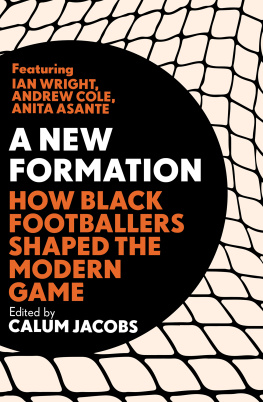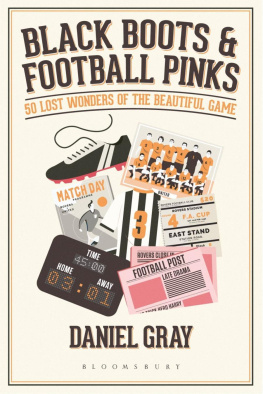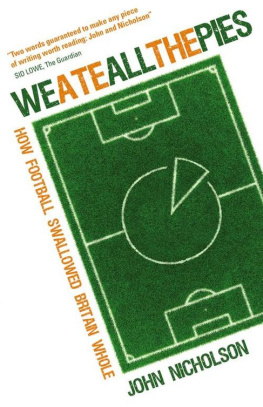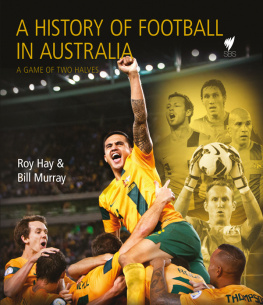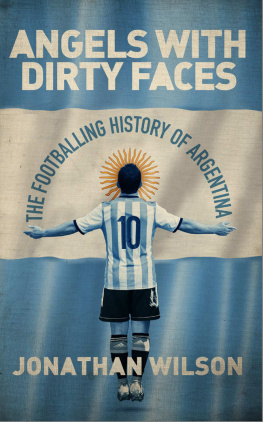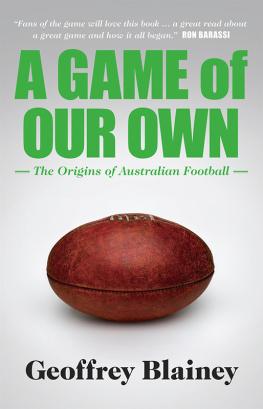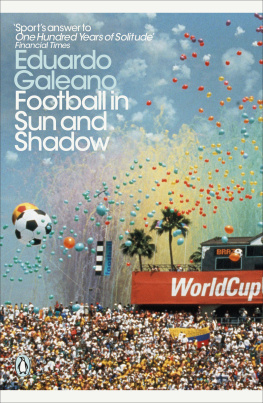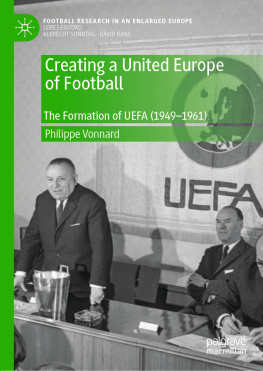
A NEW FORMATION
How Black Footballers Shaped the Modern Game
Edited by Calum Jacobs

Contents
About the Authors
Calum Jacobs is a British-Guyanese writer, editor, and creative practitioner from south London who draws on sociology, history and culture to explore the liminality of Black British life. In 2017, he launched CARICOM Magazine, a print and online platform dedicated to discussing football and broader culture through a Black lens. Jacobs is also a contributor to various sport and culture publications, and has worked on creative projects for agencies and brands. A New Formation is his first book.
Instagram: @caricomweb @badcal
Twitter: @caricomweb
Musa Okwonga is the author of two books on football, the first of which was nominated for the 2008 William Hill Sports Book of the Year award, and one collection of poetry. He is the co-founder and co-host of the Stadio football podcast, and his memoir about his five years at Eton College, One of Them, was published in 2021.
Instagram: @okwonga
Twitter: @okwonga
Thomas Theodore is a writer, musician and lifelong Arsenal fan based in Islington, London.
Instagram: @teddy.slendergrass
Jude Wanga is a writer, activist and editor at New Socialist.
Twitter: @judewanga
Jeanette Kwakye MBE is a five-time British athletics champion and was a finalist in the 100 metres Olympic final in Beijing in 2008. She is now an experienced sports broadcaster and journalist for the BBC, Sky and Channel 5. Jeanette also works with young people in schools on behalf of the Youth Sport Trust.
Instagram: @justjnette
Twitter: @jnettekwakye
Kwaku Dapaah-Danquah is a British-Ghanaian entrepreneur, podcaster and programme manager with interests spanning personal development and social enterprise. His podcast Over the Bridge won an award in the Acast Moment of the Year category at the 2019 British Podcast Awards for its feature interview of Stormzy. Kwaku has written frequently on identity and wellbeing for his own blog, as well as contributing to issue two of CARICOM, with a pamphlet insert on Black male mental health.
Instagram: @kwakudapaah_
Twitter: @kwakudapaah_
Sanaa Qureshi is a project manager in community sport who lives in London. She has contributed to Unusual Efforts, MUNDIAL magazine, Stadio, Popula and Khidr Zine.
Instagram: @sanaaqureshi
Twitter: @sanaa_mq
Aniefiok Neef Ekpoudom is a writer from South London who documents and explores culture in Britain. In his work, Aniefiok tells stories about the people and movements shaping the country as it exists today. He has written for, and worked with, The Guardian, British GQ, British Vogue, The Observer, GRM Daily, Adidas, Nike, Netflix UK, and more. His first book, Where We Come From, will be released via Faber & Faber in 2023.
Instagram: @aniefiokekp
Twitter: @aniefiokekp
For my dad, Gregory Jacobs.
Introduction
Calum Jacobs
A New Formation should not be understood as a book about racism in football, a manifesto for change or a handbook about how to build allyship. You will find no blueprints, solutions or three-point plans within these pages. Although each essay, by virtue of its very existence, is advocating for a change in how Black people are perceived both by broad sections of the media and by white society no explicit case for change will be presented. If you are unclear about why Black people, or people of the global majority, should not be asked to continuously make a case for racial equity, then, honestly, this book may not be for you.
None of the essays you are about to read aim to understand the individuals theyre focused on solely through the trials or racism that theyve faced, battled and overcome. To do so would strip them of their personhood and complexity, reducing them to emblems or two-dimensional symbols. Thats not to say that A New Formation eschews discussion of anti-Black racism; it simply refuses to use it as the bedrock for its analyses.
Instead, this book pays tribute to, and details the influence of, a deliberately varied range of Black and mixed-race footballers, past and present, who have shaped the beautiful game and broadened conceptions of the Black experience through the things they have said and done both on and off the pitch. All the writing found within these pages seeks to expand our collective understanding of these individuals, moving the conversation beyond the cult of celebrity in order to examine how their individual experiences have helped to inform the complexity, integrity and multiplicity of Black life.
In some cases, the contributed essay will be based on an interview; in others, the writing will take the form of a composite of things the subject has said, an idea theyve represented and fragments of their interior life theyve shared. This means that the writing will vary in form, tone and approach thereby allowing each chronologically ordered essay to offer a previously unexplored perspective.
All the writers featured in A New Formation have been commissioned along lines of relatability. To better understand why I felt it important to do this, its useful to lean on the words of Linda Tuhiwai Smith, a Mori professor of Indigenous education: when indigenous peoples become the researchers and not merely the researched, the activity of research is transformed. Questions are framed differently, priorities are ranked differently, problems are defined differently, people participate on different terms. Smiths comments related to the Mori community from which shes drawn, but something similar can be said about what happens when Black people become the researchers. Given the abundance of joy, pride and affirmation Black players bring to football and by extension the lives of all manner of football fans its strange to witness how little of that feeling is captured across the newspaper interviews and books that commonly depict their lives. A New Formation will work to remedy this.
Now, I know I said that this book wasnt about racism, but before we can begin the work of tying Blackness to community and kinship and heritage and home, we need to track the winding paths that Black and mixed-race players have walked that have taken them from steeling themselves in preparation for abuse to becoming leaders at the forefront of politics, all while simultaneously influencing Black British identity. To do this, we have to start at the point in history where the effects of their presence in the national game began to be felt.
The Dark Old Days
Those of us fortunate enough to have avoided the dark old days of English football in the 1970s and 1980s understand them only in abstract. Even the very name dark old days lends the era the feel of mythology, as if were to believe that its a long-forgotten time with little bearing on the present. In order to trace our hands over the abrasive contours of this period in history, we rely on recollections relayed by family and friends or recorded in literature and documentaries. While many of these accounts detail how racial and political violence manifested on the terraces and outside stadiums affecting both Black footballers
Next page
